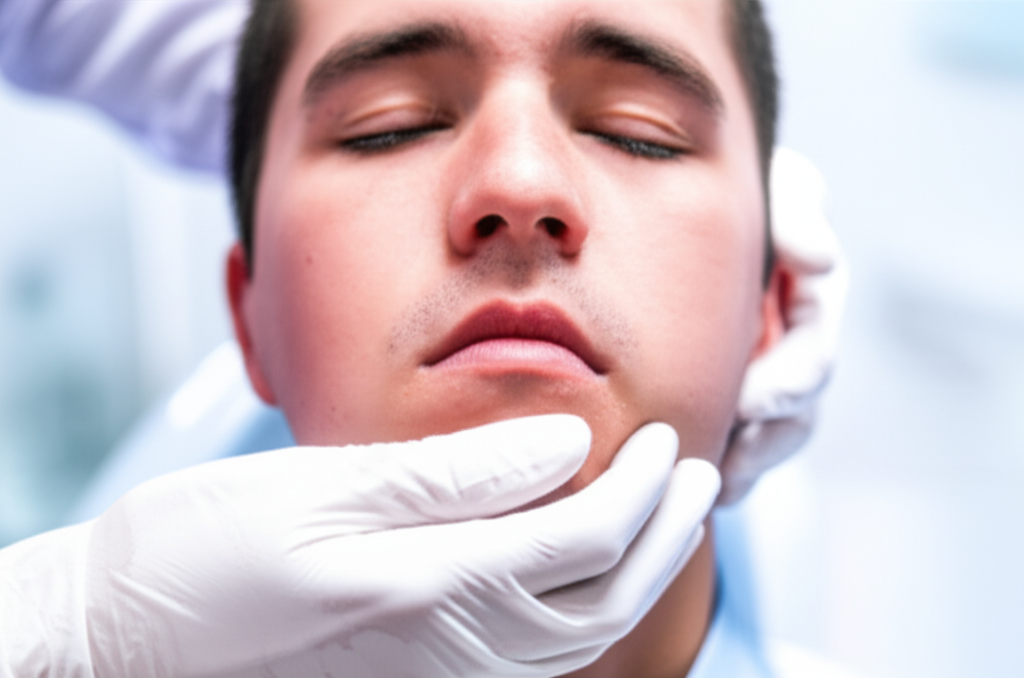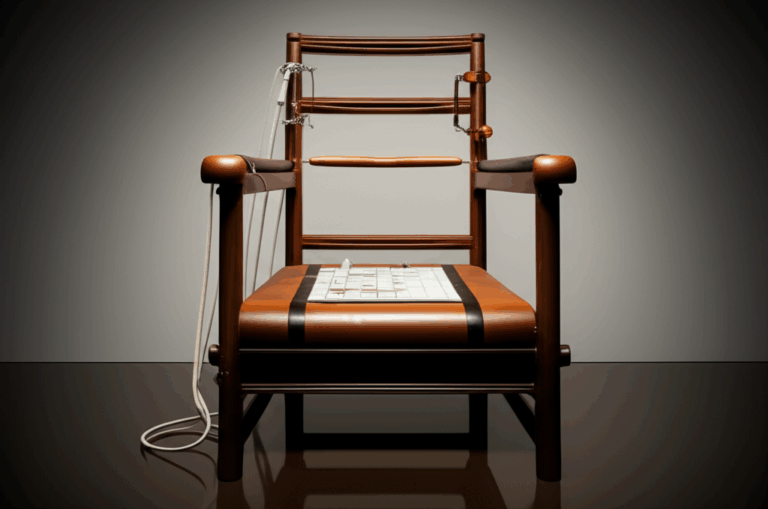
Can a Dentist Fix TMJ? Understanding Your Treatment Options for Jaw Pain Relief
That bothering pain by your ear, the click or pop when you yawn, the problem of not being able to open your mouth all the way—if you’re reading this, you or someone you know has these jaw problems. You’ve probably searched “can a dentist fix TMJ?” hoping to find answers and real help.
If jaw pain is worrying you, you’re not alone. Millions of people have TMJ issues, officially called temporomandibular joint (TMJ) or temporomandibular disorder (TMD). The good news? Dentists really can help spot and treat these problems. But when is a regular dentist enough? When should you see a specialist? What treatments actually work for jaw pain, and what can you try at home before going to the dentist?
This guide is your one-stop place to learn what TMJ/TMD is, how dentists help, what dental treatments are out there, and when it’s time for a specialist. Our goal is simple: give you clear answers, caring advice, and help you take the next step towards feeling better.
In This Article
- The Role of Dentists in TMJ/TMD Help
- What Is TMJ/TMD? Common Signs and Causes
- How Dentists Check and Start Treating TMJ Problems
- Dental Treatments for TMJ
- When to See a TMJ Specialist
- Other Therapies That Help
- How to Pick the Right TMJ Dental Expert
- Long-Term Tips and How to Stop It From Coming Back
- What to Do Next for Lasting Relief
The Dentist’s Important Role in TMJ/TMD Help
Let’s answer the big question right away: Yes, a dentist can help or really improve most TMJ problems. In fact, general dentists are usually the best place to start when you have jaw pain, clicking, headaches, or other TMJ/TMD symptoms. Why? The jaw joint and how your teeth come together (what dentists call your “bite”) are closely connected. Dentists are specially trained to look at this, making them great at spotting and managing most jaw problems.
But TMJ isn’t just “one thing.” It’s a broad word for a bunch of problems that mess with the jaw joint, the chewing muscles, and the way your teeth meet. This is why you might read both “TMJ” (the joint itself) and “TMD” (any problem in the system) here.
If you’re dealing with jaw pain, face pain, or trouble moving your mouth, you’re right to wonder what to do. This article will guide you through symptoms, checks, treatments, and next steps—so you can get answers (and relief) you’re looking for.
What Is TMJ/TMD? Knowing the Signs and What Causes It
Common Signs: Do These Sound Like You?
- Jaw pain or soreness, especially near the ears or when chewing
- Clicking, popping, or rough sounds when you open or close your mouth
- Jaw that gets stuck or is hard to move (lockjaw/trismus)
- A lot of headaches or migraines
- Ear pain or stuffy feeling in the ears (with no hearing change)
- Aching pain in your face, sometimes moving to the neck or shoulders
- Trouble biting, chewing, or pain with some foods
- Sometimes ringing in the ears (tinnitus) or even feeling dizzy
Not everyone has all of these. Some only have mild clicking, while others have jaw locking or bad pain. And symptoms can come and go—making it hard for many to get a diagnosis.
What Causes TMJ Disorders?
TMJ/TMD doesn’t usually come from just one thing. Most times, it’s a mix of causes:
- Bruxism: Clenching or grinding your teeth (often at night)
- Stress: Tension makes jaw muscles tighten (notice your jaw clenching when you’re stressed?)
- Injury: A hit to the jaw can mess up the joint’s balance
- Arthritis: Different types of arthritis can hit the TMJ like other joints
- Bite or alignment problems: Issues with how your teeth fit together (malocclusion) can bother the jaw joint
- Habits: Chewing tough foods, always chewing gum, or biting nails
TMD is pretty common. Experts say 5–12% of people have it at some time, with women—especially between teens and menopause—having it more often than men.
> Bottom Line: TMJ symptoms can come from lots of things, and a dentist can help figure out what’s causing your pain.
How Dentists Check and Start Treating TMJ Problems
A. How Does a Dentist Know If You Have TMJ/TMD?
Your visit starts with talking. Dentists ask about your pain: When did it begin? Do you wake up with sore jaws? Does your jaw get stuck or make noise? They’ll go over your medical and dental history.
Next, a hands-on exam:
- Checking how wide you can open your mouth
- Listening and feeling for jaw clicks or pops
- Pressing gently on jaw muscles for pain
- Looking at how your teeth meet
Sometimes, your dentist may need pictures of your teeth and jaw. They might order X-rays, a panoramic X-ray, CT scan, or sometimes an MRI if there might be a deeper problem.
B. First Steps—Gentle and Simple Treatments
Most dentists like to start with easy, non-invasive options—because studies show that 80–90% of people feel better without surgery or tough procedures.
Small Changes for Relief
- Try eating soft foods for a week or two—nothing too chewy or rough
- Stop habits like gum chewing or biting pens
- Don’t yawn too wide, or sing really loud (we know, this is hard for karaoke fans!)
- Try to lower your stress—meditation, exercise, or whatever helps you relax
Helpful Home Tips
- Use warm towels or ice packs on your jaw (whichever is better for you)
- Gentle jaw stretches, as your dentist shows you
- Don’t sleep on your stomach (it moves your jaw into weird positions)
Over-the-Counter Meds
- NSAIDs (like ibuprofen or naproxen): Help with pain and swelling
- Muscle relaxants: Sometimes for short, bad TMJ flare-ups, but only if your dentist says so
Your dentist’s goal is to calm things down first, before trying more involved solutions.
Dental Treatments for TMJ: What Your Dentist Can Do
A. Oral Appliances: Night Guards and Custom Splints
One of the best dental fixes is a custom-made oral appliance. Think of it as a “protector” for your jaw.
How Do They Work?
- Keep your top and bottom teeth from grinding together at night (a big reason for jaw pain)
- Take pressure off jaw muscles
- Help your bite stay stable and sometimes move the jaw to a better spot
Types of Appliances
- Soft night guards: Comfy pads mainly for stopping tooth grinding
- Custom splints: Made just for you, sometimes adjusting your bite, relaxing jaw muscles, and helping your jaw move better
Pain gets much better for 70–90% of people who use these. If you think of those store-bought guards, remember: Custom ones from your dentist or a night guard dental lab fit way better and help more.
B. Bite Correction (Occlusal Adjustments)
Sometimes jaw problems come from just a few teeth that don’t line up right, making everything work harder—like a wobbly chair leg.
- How it works: Your dentist carefully reshapes some tooth surfaces so your bite is even.
- Things to know: Only done after careful checking, because doing too much could make things worse. Success depends on your exact case.
C. Orthodontic Care
If your bite needs more than a small fix—like big misalignment or crowding—your dentist might send you to an orthodontist for:
- Braces or clear aligners: Straightening teeth to help your jaws fit together can help jaw pain for some people.
- This takes longer, but for some, it’s the real answer for ongoing jaw problems.
> Bonus: Some modern labs, like a digital dental lab, work with your dentist to make special, high-tech devices for TMJ.
When to See a TMJ Specialist: When Extra Help Is Needed
Not all jaw problems are the same. If you’ve tried regular dental help—appliances, simple care—and your pain won’t go away, you might need a specialist.
Who Are TMJ/TMD Experts?
- Orofacial pain specialists: Dentists with extra training in head, jaw, and face pain
- Oral and maxillofacial surgeons: Do surgery or tough cases (rare—less than 2% need this!)
- Prosthodontists: Handle big bite repairs if you need a lot of dental work
- Physical therapists: Some are great at jaw rehab—exercises, hands-on help, fixing posture
- Neurologists or rheumatologists: Help if your issues come from nerves or arthritis
Teamwork Matters
The best results often come when your dentist teams up with these experts, especially for stubborn jaw pain.
Other Therapies That Help TMJ
If the usual dental treatments aren’t enough, you still have options.
A. Botox Injections
Yes, the same Botox for smoothing skin can help jaw pain. A trained professional puts tiny shots into the jaw or temple muscles. Botox can relax overactive muscles and stop pain, especially if you grind your teeth a lot. It lasts 3–4 months, and many feel much less jaw pain and headaches after.
B. Physical Therapy
Physical therapists can teach you gentle jaw moves, better posture, and hands-on treatments to make your jaw move easier and stop pain from coming back.
C. Trigger Point Shots
If certain sore spots in your jaw muscles cause pain, small shots with numbing medicine (and sometimes steroids) can break the pain cycle.
D. Minor Procedures: Arthrocentesis
This is done by a specialist—it’s a way to wash out the jaw joint, bringing down swelling and helping it move better. It’s less invasive than real surgery and can help when nothing else does.
E. Surgery: Only for Serious Cases
Surgery is the last choice, mostly for bad joint problems—like the disc inside is out of place or the TMJ joint is ruined by arthritis. Less than 1–2% ever need it.
Types of TMJ surgery:
- Arthroscopy: A little camera and tools fix small joint issues
- Open-joint surgery: For the worst joint problems (joint replacement or fixing the disc inside the joint)
How to Pick the Right TMJ Dental Expert
Not all dentists have the same experience with TMJ/TMD. Here’s how to choose someone who can really help:
What To Check
- Experience with TMJ, not just general dental work
- Extra training in TMD, or is part of the American Academy of Orofacial Pain
- Teamwork: Willing to connect with other experts if needed
- Patient reviews: Honest ones can tell you a lot
- Will listen to you: A good TMJ dentist takes time to hear your story, not just look at X-rays
> Tip: Ask if your custom mouthguard is made locally or by a good china dental lab, as good quality makes a big difference in comfort and results.
The Value of a Good Consultation
Don’t rush your first visit. Your dentist should:
- Take your medical and dental history
- Check your bite and jaw motion
- Ask about your habits and stress
- Explain all your options, not just push “one size fits all”
You should leave your appointment knowing more about your TMJ and have a plan just for you.
Long-Term Tips and How to Stop It From Coming Back
Getting over TMJ/TMD is usually a process, not something that fixes overnight. Here’s how you can help yourself:
Keep Doing Self-Care
- Keep eating soft foods if your jaw acts up
- Use heat or ice as soon as you feel jaw pain
- Do your jaw exercises, as your dentist or therapist showed you
Keep Up With Dental Visits
- Go in every 6–12 months for checkups
- Mention any new jaw problems, even if they seem small
Handle Stress
Stress and jaw pain often go together. Try:
- Meditation or deep breathing
- Regular exercise
- Talking to someone if things feel too hard
Break Bad Habits
Don’t chew pens, bite your nails, or crunch ice. These little things can make your TMJ worse.
Watch Your Posture
Do you hunch over your phone or computer? Bad posture can stress your neck, shoulders, and jaw. Try to sit up straight and relax your shoulders.
What to Do Next for Lasting TMJ Relief: The Essential Checklist
Here’s the simple version:
- Dentists are the right place to start for TMJ/TMD issues—they check, treat, and send you to a specialist if needed.
- Most TMJ problems get better with simple care: Custom guards, splints, gentle bite fixes, and changing a few things in your day.
- Specialists help with tough or strange cases or if surgery is needed (rare—less than 1–2%).
- Ask your dentist about:
- Custom dental appliances (not store-bought guards)
- Referral to a pain specialist or therapist if you’re not feeling better
- Things like Botox or physical therapy if you still hurt
- Prevention helps: Lower stress, check your bite, and skip hard foods or bad habits for your jaw.
Frequently Asked TMJ Questions & Quick Answers
Should I see a dentist or a doctor for jaw pain?
Start with a dentist, especially if you hear clicking, have sore jaws, or your bite feels odd—they know how to check and treat TMJ best.
Can a regular dentist handle TMJ, or do I need a specialist?
Most jaw problems are fixed by a regular dentist, but extra-tough cases might need a specialist or a surgeon.
Will a dentist-made night guard help my jaw pain?
For many people, yes! Especially if clenching or grinding is a problem. Custom ones fit and work much better than regular store versions.
When should I get sent to a specialist?
If you’re not better after a few months with your dentist, or your symptoms are really bad (like your jaw locks), ask for a referral.
What if my jaw pain is from missing teeth or bad dental work?
Bite problems can cause jaw pain too. Fixes might include crowns and bridges (sometimes made at a professional lab) or partial dentures, depending on what you need.
Can TMJ fix itself?
Some mild cases do get better on their own, especially with at-home care. But pain that sticks around needs a dentist to check it out.
Your Healthy Takeaway
- TMJ/TMD is really common and usually treatable.
- Dentists are the best place to go first for help and answers.
- Mouthguards, little habit changes, and stress relief are the main fixes.
- Dentists can team up with other specialists for tough cases.
- Don’t wait—the sooner you get checked, the quicker you’ll feel better.
Take Action: Don’t let jaw pain run your life or your smile. If you see signs of TMJ, make a dental appointment and talk about what’s going on. Fixing jaw pain is often easier than you think.
References: National Institute of Dental and Craniofacial Research, American Academy of Orofacial Pain, American Dental Association, and others.
Note: This resource is for general learning and shouldn’t take the place of seeing a real dentist.








